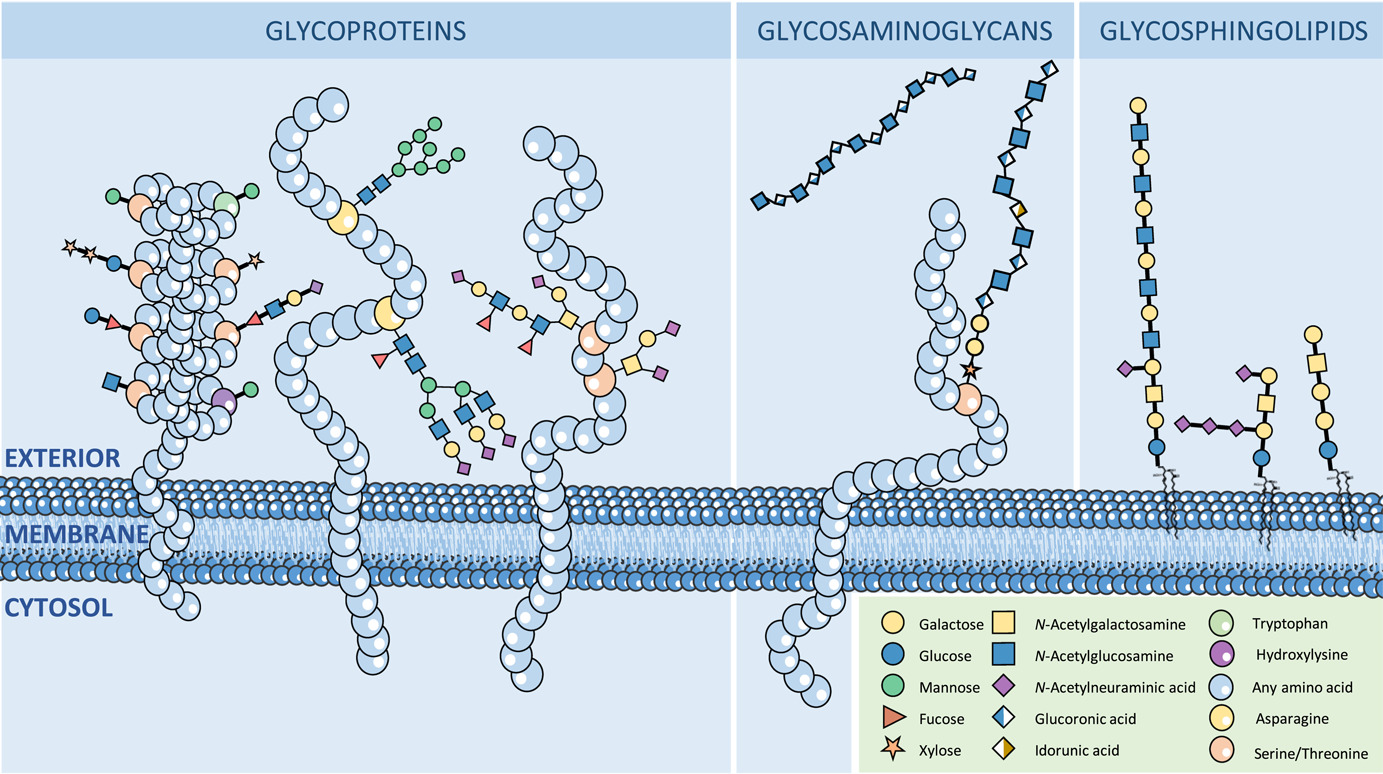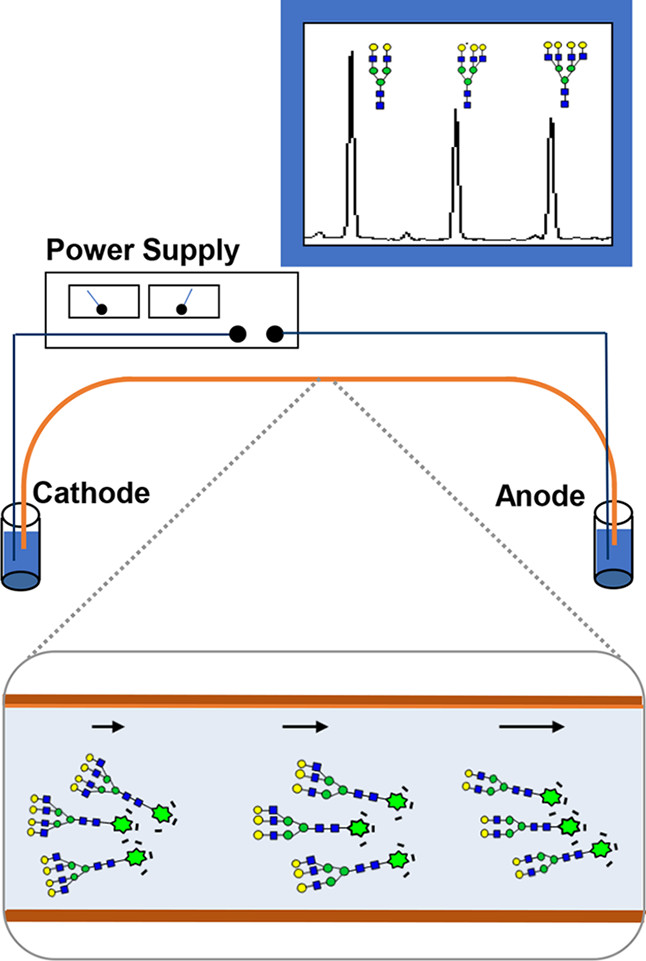Glycan Separation and Purification Services
Glycan separation and purification analysis is designed to efficiently extract and enrich specific glycan molecules from complex biological samples, serving as a critical step in glycomics research. Due to the high diversity of glycan structures and their typically low abundance in glycoproteins, glycolipids, and other macromolecules, direct structural or functional analysis is often compromised by interfering substances. Therefore, achieving highly selective and pure glycan separation and purification is crucial for ensuring the accuracy and reproducibility of downstream analyses.
The glycan separation and purification services are widely applied in glycomics research, biopharmaceutical quality control, disease biomarker screening, and vaccine and antibody development. By providing high-quality glycan separation and purification, it offers a reliable foundation for subsequent structural identification, quantitative analysis, and functional studies.

Lageveen-Kammeijer, G. Mass Spectrometry Reviews, 2021.
Figure 1. Major Types of Glycosylation on Human Cell Membranes.
Services at MtoZ Biolabs
Based on advanced analytical technology platforms, MtoZ Biolabs' glycan separation and purification services provide efficient glycan separation and purification. The service encompasses sample preprocessing, glycan extraction, separation and enrichment, as well as structural characterization of the purified products, delivering high-purity glycans for structural analysis, quantitative research, or functional validation. This service provides high-quality data support for glycomics research, biopharmaceutical quality control, and disease mechanism exploration. We combine multiple strategies to ensure the efficiency and purity of glycan separation, meeting diverse research needs:
1. Chromatography
Utilizing techniques such as Hydrophilic Interaction Chromatography (HILIC), reversed-phase chromatography, and ion-exchange chromatography, glycans are efficiently separated based on polarity, charge, and hydrophobicity, making it suitable for analyzing a variety of glycan types.
2. Electrophoresis
Glycans are resolved using techniques like polyacrylamide gel electrophoresis (PAGE), commonly used for samples with complex structures or requiring high-resolution separation.
3. Mass Spectrometry
Coupled with high-resolution mass spectrometry platforms (such as Orbitrap and Q Exactive), mass spectrometry is used for quality confirmation and preliminary structural screening of purified glycans, enhancing the accuracy of separation results.
4. Enzyme Digestion
Specific glycosidases are used to hydrolyze the linkage between target glycans and proteins or lipids, releasing free glycans and ensuring thorough preprocessing prior to separation.
5. Precipitation and Filtration
Organic solvent precipitation or membrane filtration techniques are used to remove proteins, salts, and other interfering substances, enhancing the purity of glycans and the stability of the analysis.
6. Centrifugation
Efficient layering and concentration are performed during the glycan extraction and separation stages, ensuring consistency in operations and high sample recovery rates.
7. Lectin Enrichment
Lectin-affinity media, with specific binding properties, are employed to enrich particular glycan structures, increasing the separation efficiency and detection sensitivity for low-abundance glycans.

Lu, G. et al. Chemical Reviews, 2018.
Figure 2. Basic Diagram of the Capillary Electrophoresis System Commonly Used to Separate APTS-Labeled Glycans.
Service Advantages
1. Multi-Platform Integrated Analysis
By combining high-performance liquid chromatography, electrophoresis, and mass spectrometry, we provide an integrated analysis workflow that covers glycan separation to structural characterization.
2. High Purity and High Recovery
Optimized enrichment and purification strategies ensure high purity and good recovery of target glycans, minimizing sample loss.
3. Customized Services
Flexible separation methods and analysis strategies are tailored to research objectives, supporting structural studies, quantitative analysis, or subsequent functional experiments.
4. Professional Technical Support
Our team has extensive experimental experience and offers full-process technical consultation and data interpretation to ensure smooth project progression.
Applications
1. Glycomics Research
Glycan separation and purification services can be used for the systematic analysis of glycan structures and diversity in different biological samples, revealing the role of glycosylation in cellular recognition, signal transduction, and other life activities.
2. Pre-Processing for Biomarker Screening
Before large-scale screening of potential glycosylation biomarkers, efficient glycan separation and purification are performed to enhance the sensitivity and accuracy of subsequent detection.
3. Functional Glycan Research
Glycan separation and purification services provide high-purity materials for studying the recognition and binding mechanisms between glycans and proteins, lectins, and other molecules, aiding in the exploration of glycan biological functions.
4. Multi-Omics Integrated Analysis
As a key component in the integration of glycomics with proteomics, metabolomics, and other omics studies, standardized glycan samples are provided to advance systems biology research.
FAQ
Q1: Which Samples Are Suitable for Glycan Separation and Purification Services?
A1: Common samples include glycoproteins, glycolipids, serum, plasma, cell lysates, tissue extracts, and more. We also support further purification of free glycans. Different sample types may require adjustments in preprocessing and glycan release strategies.
Q2: Are Structural Confirmation or Quantitative Analysis Provided?
A2: Yes. After separation and purification, we can perform structural analysis, quantitative detection, or component identification using platforms like HPLC and mass spectrometry (e.g., Orbitrap). We can also extend the analysis to glycan-protein interaction studies based on project requirements. Please contact us in advance if needed.
MtoZ Biolabs, an integrated chromatography and mass spectrometry (MS) services provider.
Related Services
Glycan Structure Analysis Service
How to order?







